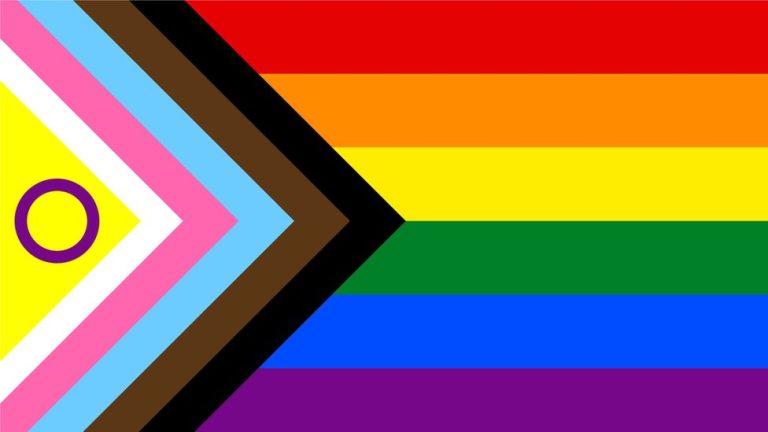Born on Aug. 24, 1945 in New Jersey, Marsha P. Johnson was assigned male at birth. From a very early age, she identified as female. Johnson is best known for her work as an AIDS activist, her work in gay liberation and especially her involvement in the Stonewall Inn Uprising.
Johnson was one of seven children born to an assembly line worker and housekeeper. Facing adversity such as rape and bullying an early age and being raised in a homophobic household, she dropped out of high school in her senior year but went on to join the Navy under her birth name and assigned gender. She remained in the military for six months, during which time she earned her GED. After an honorable discharge in 1963, she settled in Greenwich Village in New York City, where she lived on the streets and waited tables. It was during this time that her exposure to street hustlers (prostitutes) began and she started working in survival sex (prostitution out of desperate need to survive). That exposure gave her the courage to come out as queer. She described herself as gay, a transvestite and a queen (referencing drag queen). “Transgender” was not a commonly used term in the 1960s, but Marsha described herself as “transsexual,” and defined that as being a person who lives as the gender identity they embrace, uses hormone therapy to affirm that gender and who often has a goal of sex reassignment surgery. According to an interview in 1992, Johnson was quoted as saying “I was a no one, nobody, from Nowheresville, until I became a drag queen.” Johnson was known for wearing cheerful flowing clothing, bright wigs, red plastic high heels and often wore crowns of fresh flowers. Her form of drag was called “high drag,” or “show drag,” which is often perceived as being theatrical.
Marsha P. Johnson is well known for her involvement in a critical moment in the gay rights movement, the Stonewall Uprising. In the early morning hours of June 28, 1969, a police raid hit the Stonewall Inn, a gay bar in Greenwich Village. The raid led to violent demonstrations against the police and the injustice and persecution faced by the queer community. In the 1950s and 1960s, the legal system was extensively anti-queer. In New York, as was the case in most U.S. cities, being homosexual was illegal. These riots lasted for several days and marked a significant step forward in the gay rights movement. Johnson played a pivotal role in these riots, earning fame as a forerunner of the LGBTQ+ liberation movement in the U.S. She was only 23 years old at the time, but already willing to stand up for herself and countless others.
In 1970, Johnson and her friend Sylvia Rivera co-founded STAR House (Street Transvestite Action Revolutionaries), which provided shelter and services to homeless LGBTQ+ youth and advocated for transgender rights.
As the AIDS epidemic took root in the 1980s and after being the caregiver for a dear friend who was dying from AIDS, Johnson began advocating for those affected by the disease. She became dedicated to sitting with those dying of the horrific illness, offering them companionship, comfort and kindness. Johnson herself was diagnosed with HIV around 1990, making the cause even more personal.
On July 6, 1992, at only 46 years old, Marsha P. Johnson was found deceased floating in the Hudson River off the West Village Piers in New York City. Her death was at first deemed to be by drowning and reported as a suicide. Friends claimed she was not suicidal at the time of her death. In 2002, her case was reopened and her manner of death was officially changed from suicide to “undetermined.” While her case remains unsolved, there are reports that the night before she went missing she was seen arguing with a neighbor, who was slinging homophobic slurs. Allegedly, the man was later overheard bragging in a bar about having killed a drag queen named Marsha. Wicker, Johnson’s roommate at the time, also claims he saw her body after it was dredged from the river. He asserts there was a wound to the back of her head, which would be inconsistent with suicide. While we may never know exactly how Marsha P. Johnson died, her loss to the world was massive. She was a person who helped make critical social advances that helped the queer community gain equity. It leaves one to wonder, had she lived longer, what other great things might she have done? It’s a pleasure to write about Johnson in honor of Women’s History Month. Her courage and dedication to fellow humans is truly inspirational, leaving her remembered by many as a true hero.
Marcella Lewis is assistant secretary of PRIDE of Ferry County, published novelist M. Lauryl Lewis and podcast host of “Social Injustice LET’S TALK ABOUT IT with Marcella.”
In Other News
